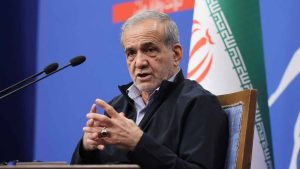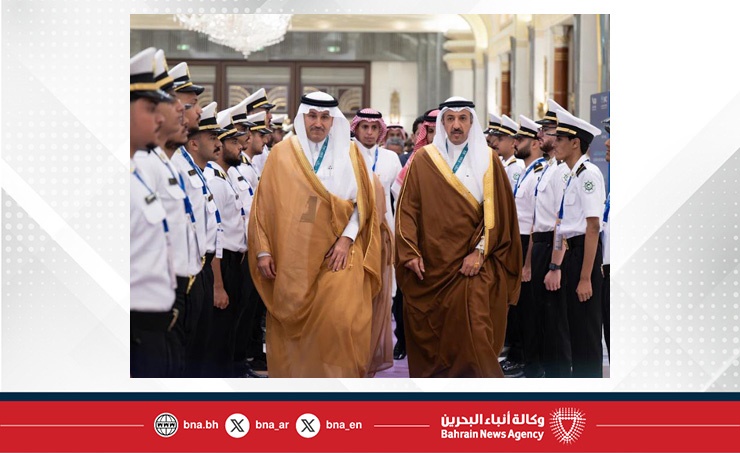Jeddah, September 3 /BNA/ His Excellency Dr. Sheikh Abdullah bin Ahmed Al Khalifa, Minister of Transport and Communications, affirmed that the Kingdom of Bahrain continues to support international initiatives aimed at enhancing the sustainability of the maritime transport sector, noting that innovation and modern technologies have become a fundamental pillar to achieve operational efficiency and reduce emissions in this vital sector.
The minister explained that Bahrain’s participation in regional and international conferences comes within its firm commitment to joint Gulf and global cooperation and exchange of expertise with international partners, in line with Bahrain’s Economic Vision 2030, enhancing its logistics capabilities and strategic position as a major commercial gateway in the region.
This came during the participation of the Minister of Transport and Communications in the 2nd International Conference on Maritime Industry Sustainability (SMIC 2025), hosted by the city of Jeddah in the sister Kingdom of Saudi Arabia on September 3 and 4 under the slogan “Sailing Towards a Sustainable Future,” organized by the General Authority of Transport in Saudi Arabia, under the patronage of His Excellency Engineer Saleh bin Nasser Al-Jasser, Minister of Transport and Logistic Services, with the participation of a distinguished group of ministers, ambassadors, and maritime transport industry leaders from various countries, alongside representatives of leading international organizations such as the International Maritime Organization (IMO) and the International Association of Marine Aids to Navigation and Lighthouse Authorities (IALA), to enhance international cooperation and unify efforts towards an environmentally friendly maritime future.
Sheikh Abdullah bin Ahmed Al Khalifa participated in the ministerial session of the conference, which discussed the main challenges facing maritime supply chains at regional and global levels, including the repercussions of global crises such as the COVID-19 pandemic and environmental challenges like climate change, in addition to geopolitical tensions and their impact on maritime security. In his intervention, he emphasized that addressing these challenges requires enhancing digitization, integrating efforts between the public and private sectors, and incorporating sustainability with maritime security to help create safe and environmentally friendly shipping corridors.
The minister also addressed in the session the long-term challenges to achieving sustainability in maritime transport, pointing out that the requirements to reduce emissions and digital transformation necessitate joint regional and international coordination, developing “green shipping corridors” between ports, setting unified standards for digital platforms and emissions reporting, as well as establishing regional sustainability funds to support innovation and assist small and medium enterprises.
The conference sessions included several main themes, including adopting the latest maritime technologies, the role of digitization and cybersecurity in enhancing sector efficiency and safety, in addition to the future of maritime workforce and their contribution to building a sustainable transport industry. The program also includes a series of specialized workshops addressing carbon reduction strategies in shipping operations, developing roadmaps for small and medium maritime enterprises, and developing green financial and insurance solutions to support sustainable growth.












Recommended for you
Talib Al-Rifai Chronicles Kuwaiti Art Heritage in "Doukhi.. Tasaseem Al-Saba"
Exhibition City Completes About 80% of Preparations for the Damascus International Fair Launch
Unified Admission Applications Start Tuesday with 640 Students to be Accepted in Medicine
Egypt Post: We Have Over 10 Million Customers in Savings Accounts and Offer Daily, Monthly, and Annual Returns
His Highness Sheikh Isa bin Salman bin Hamad Al Khalifa Receives the United States Ambassador to the Kingdom of Bahrain
Al-Jaghbeer: The Industrial Sector Leads Economic Growth